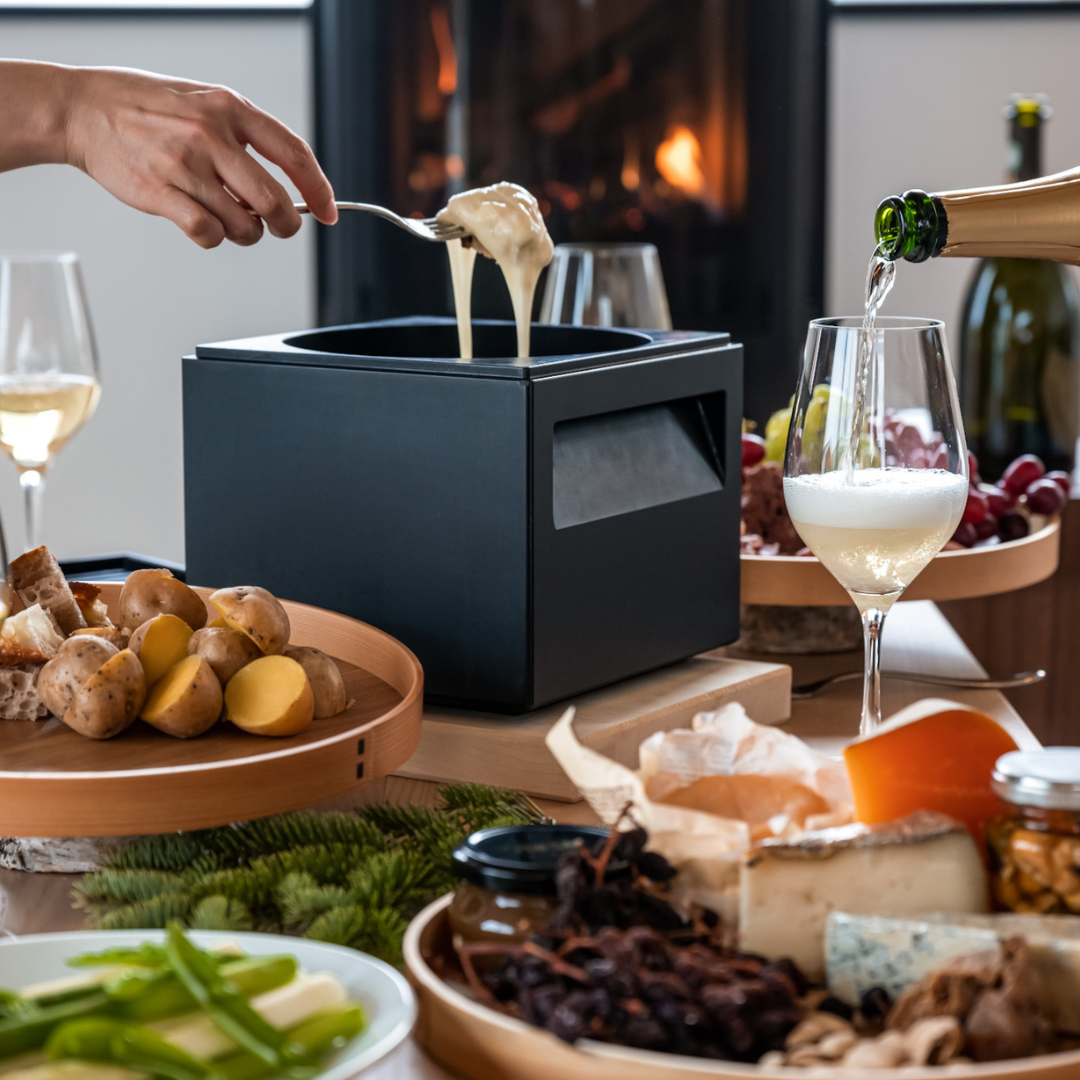Points for the recipe:
In the spring, Japanese markets offer firefly squid, a small squid about 2 inches long that is prized for its rich flavor. In this dish, the firefly squid is finely chopped with a knife to infuse its flavor into the rice and make it easier to mix. The ingredient to pair with firefly squid is udo, a fragrant ingredient that evokes the feeling of spring. If udo is not available, asparagus can be substituted.
A powder made from sake lees can be used instead of cheese. If there is any leftover, it can be used to top salads and be enjoyed as well.
|
Ingredients (Serve 2):
Firefly squid・・・・・・・・150g |
Preparation:
Steam the raw firefly squid for about 2 minutes, then remove the cartilage, beak and eyes with tweezers.
Reserve 6 to 7 firefly squid for serving and finely chop the rest of the firefly squid with a kitchen knife.
Instructions:
1. Heat the kakugama and add about 1 tablespoon of oil. When the oil is warm, add the shallots and fry until they are translucent and lightly colored, then take them out.

2. Without washing the kakugama, put 1-2 tablespoons of oil in the same pot, add the uncooked rice and fry until each grain of rice becomes transparent.

3. Pour 1 back into 2, add finely chopped firefly squid and mix, then add about 1 ladle of warmed soup stock and cook over medium heat. Add more stock as the rice absorbs moisture, scraping the bottom of the kakugama with a wooden spatula to prevent burning.
*Be careful not to stir too much or the rice will become sticky and crack.

4. After about 10 minutes, add salt to taste and turn off the heat. To serve, add udo and the firefly squid on the risotto, cover with an outer lid and steam for 3 minutes (at this point, taste the rice and increase the steaming time if the rice is hard).

5. Serve the risotto on a plate, garnish with the firefly squid and sprinkle with a little olive oil and cheese powder if desired.

【Movie】
|
|
★ Points for the recipe with kakugama (difference from other cooking tools) The key to making this dish with a Kakugama is that the heat is gently and evenly transferred to the rice, so it can be easily cooked al dente by turning off the heat and steaming at home. In addition, because it can be made at low heat, the rice is less likely to crack and has a better texture and appearance. |




